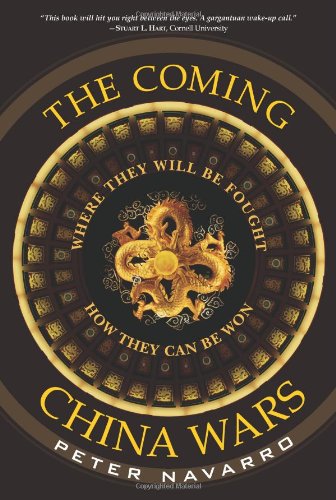
The Coming China Wars
Where They Will Be Fought and How They Can Be Won
کتاب های مرتبط
- اطلاعات
- نقد و بررسی
- دیدگاه کاربران
نقد و بررسی

October 1, 2006
In this comprehensive, contemporary look at the awakening giant that is China, Peter Navarro describes an emerging power beleaguered by both internal and external threats-if the Japanese don't get them, AIDS and SARS will. This will reassure those readers who are increasingly convinced that the Chinese will eat us for lunch. However, as Navarro points out, China's human and natural resources make her a formidable global player-and her native, amoral ruthlessness suggests she will win. Still, as a nation undergoing its Industrial Revolution in the Information Age, China has her problems transitioning from Communism to capitalist imperialism, as seems to be her goal. True, government and industry have forged strong bonds (that allow them to exploit slave labor and ignore environmental and economic constraints that hamper other nations), but like any modern nation, China is paying the price of competing in a global economy: pollution; rapacious private medical care expenses; an aging, under-pensioned population; international tensions; and a large and disgruntled peasant working class. Navarro, whose inclination to breathless hyperbole makes even a chapter on dam construction exciting, tellingly devotes 10 chapters to China's problems and one to their solution-essentially tired policy prescriptions (wean the U.S. from oil dependence and cheap Chinese imports). This informative book will teach readers to understand the dragon, just not how to vanquish it.

October 30, 2006
In this comprehensive, contemporary look at the awakening giant that is China, Peter Navarro describes an emerging power beleaguered by both internal and external threats-if the Japanese don't get them, AIDS and SARS will. This will reassure those readers who are increasingly convinced that the Chinese will eat us for lunch. However, as Navarro points out, China's human and natural resources make her a formidable global player-and her native, amoral ruthlessness suggests she will win. Still, as a nation undergoing its Industrial Revolution in the Information Age, China has her problems transitioning from Communism to capitalist imperialism, as seems to be her goal. True, government and industry have forged strong bonds (that allow them to exploit slave labor and ignore environmental and economic constraints that hamper other nations), but like any modern nation, China is paying the price of competing in a global economy: pollution; rapacious private medical care expenses; an aging, under-pensioned population; international tensions; and a large and disgruntled peasant working class. Navarro, whose inclination to breathless hyperbole makes even a chapter on dam construction exciting, tellingly devotes 10 chapters to China's problems and one to their solution-essentially tired policy prescriptions (wean the U.S. from oil dependence and cheap Chinese imports). This informative book will teach readers to understand the dragon, just not how to vanquish it.
Copyright 2006 Library Journal, LLC Used with permission.

























دیدگاه کاربران